22, November 2019
Roman Catholic prelates lead ‘peace caravans’ to Southern Cameroons 0
Catholic prelates are leading two “peace caravans” to inform the people of Cameroon’s two English-speaking regions of the resolutions of the Oct. 29-Nov. 4 “Major National Dialogue” aimed at ending a secessionist rebellion in the country.
Cameroon’s English-speaking North West and South West regions have been experiencing a civil conflict since 2016, when demonstrations broke out after there were demands to use French – the majority language in Cameroon – in their common law courts and English-modeled schools.
English speakers make up around 20 percent of the country’s population and have long complained about being marginalized by the French-speaking ruling class.
After Cameroon’s security forces’ heavy-handed response – including using live ammunition on demonstrators – rebel movements arose calling for the independence of Anglophone Cameroon, saying the new country would be called Ambazonia.
The conflict has left at least 3,000 people dead and over 500,000 displaced.
Cardinal Christian Tumi, the emeritus Archbishop of Douala, has been leading the caravan to the North West region, and Bishop Andrew Nkea of Mamfe has been heading the caravan to the South West region.
The two prelates have been outspoken in their condemnation of the abuses by both sides in the conflict and have both also been strong advocates for the rights of the Anglophone community in Cameroon. Their participation should lend credibility to the national dialogue, which was boycotted by the rebel groups.
In separate meetings to kick-start their tour, the cardinal and the bishop both made it clear that violence can never be a solution to any problem.
“It’s a campaign to promote peace between us; you cannot have peace without love,” Tumi said.
“Peace is the key word. Without peace, there is nothing,” the cardinal added, before describing the pains inflicted by separatists on some citizens.
“I know of a young man whose hands were chopped off. He is now handicapped for life,” he said.
“It’s our children, our brothers and sisters who are fighting, cutting the hands off those who are going to school,” Tumi said, and called on separatists not to be fighting “their brothers and sisters.”
Drawing parallels with the peace efforts made after World War II, the cardinal said that “violence will never lead us anywhere; World War II ended up in dialogue, and the United Nations was founded precisely to make sure it never happens again.”
The cardinal also denounced attacks on local plantation workers that have crippled the economy of the two Anglophone regions, and condemned the fact that separatists made a school boycott a corner stone of their fighting strategy.
He said the approach of the “peace caravan” was aimed at changing hearts and minds.
“To these our children who are hiding in the bushes and in the forests, the way of talking to them matters,” Tumi said.
“We should talk to them with understanding, talk to them with gentleness. Why not invite them to your table and offer them a cup of coffee and then you talk with them,” the cardinal explained.
In the country’s South West region, Nkea expressed his concerns that the conflict had led to the dehumanization of the local population, the destruction of local businesses, the crippling of the education sector, and the significant loss of human life.
As part of efforts to ensure that the peace caravans gain legitimacy, the Mamfe bishop said local leaders who had failed the people should not be part of the caravans and went as far as to call on them to resign.
Nkea noted that most elected officials in the Anglophone regions – members of parliament, senators and mayors – have fled the area since the fighting began, which the bishop called a dereliction of duty.
“This caravan is people-oriented … If people elect you to represent them and you are disconnected from them, then you don’t have any reason to be representing them,” the prelate said.
Nkea said the peace caravans have a duty to explain the resolutions of the Major National Dialogue to the people and warned against making unkeepable promises that could raise expectations too high.
“We should be realistic. We should not invent. We are going, not to please the people, but to explain,” he said.
Explaining the “special status”
As part of efforts to resolve the Anglophone problem, Cameroon’s government has proposed a special status for the two English-speaking regions. The arrangement would give more autonomy and protect their identity as a people.
“The issue of special status must be well explained. As we go around talking, this special status has to be made for everyone to understand what it is,” Nkea said.
The peace caravans have their work cut out for them. Separatist rebels have been targeting clergy, accusing them of collaboration with the government for participating in the peace process.
One priest was murdered by rebels on Nov. 1 in a kidnapping for a ransom gone wrong.
Crux

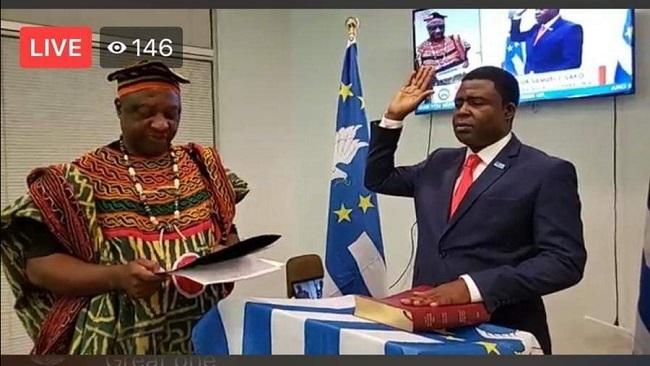
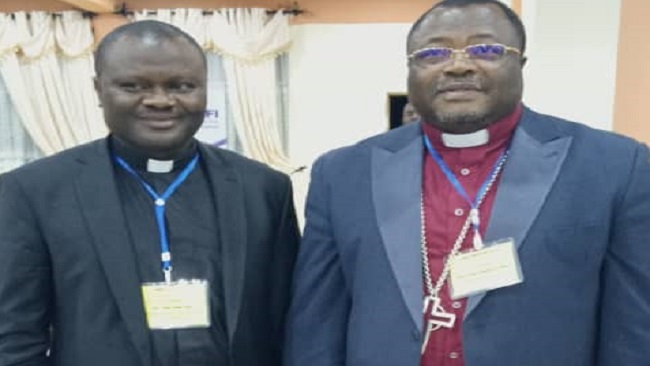
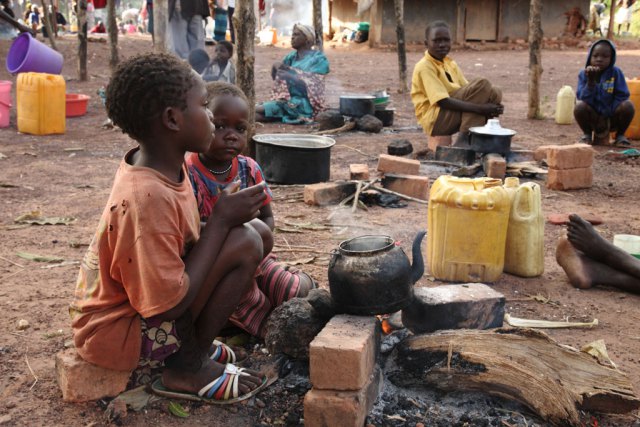


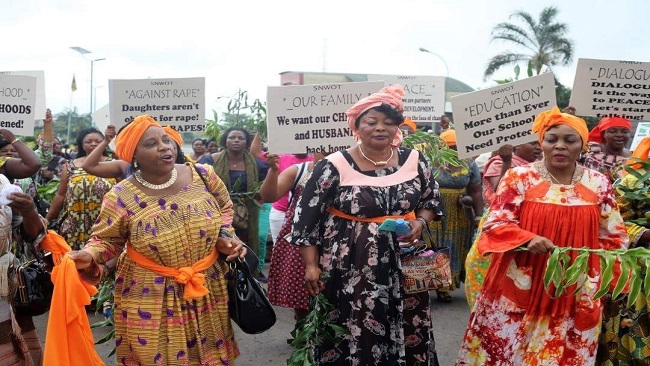
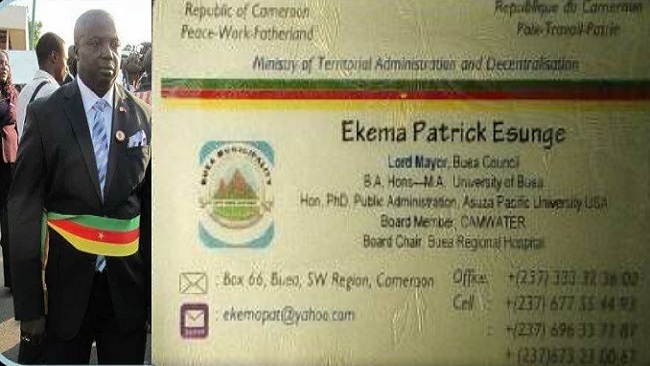



















22, November 2019
French Cameroun army says 10 separatists killed, 3 hostages freed in Ambazonia 0
At least 10 armed separatists were killed and three hostages freed by the Cameroon army early Wednesday in Njup, a locality in Cameroon’s troubled English-speaking region of Northwest, an army officer said.
The operation was conducted by Cameroon’s elite Rapid Intervention Battalion in collaboration with community defense forces, otherwise known as vigilante groups, the officer, who asked not to be named, said.
“Members of the vigilante group guided government forces to the camp of the separatists. They were ambushed and most of them including their commander were neutralized,” he said. “It was the second operation the military successfully conducted with the vigilante group in that area.”
“The three hostages that were freed during the operation are now receiving medical attention,” the the officer said.
Growing kidnapping for ransom and armed robbery prompted communities to form over 30 vigilante groups in the English-speaking regions of Northwest and Southwest, according to local authorities.
Since 2017, government forces have been clashing with armed separatist forces who want the Anglophone regions to secede from the majority French-speaking nation.
Thousands have been killed and more than 530,000 displaced internally by the conflict, according to the United Nations.
In early October, a national dialogue to end the armed conflict recommended that greater autonomy be given to the Anglophone regions.
Source: Xinhuanet